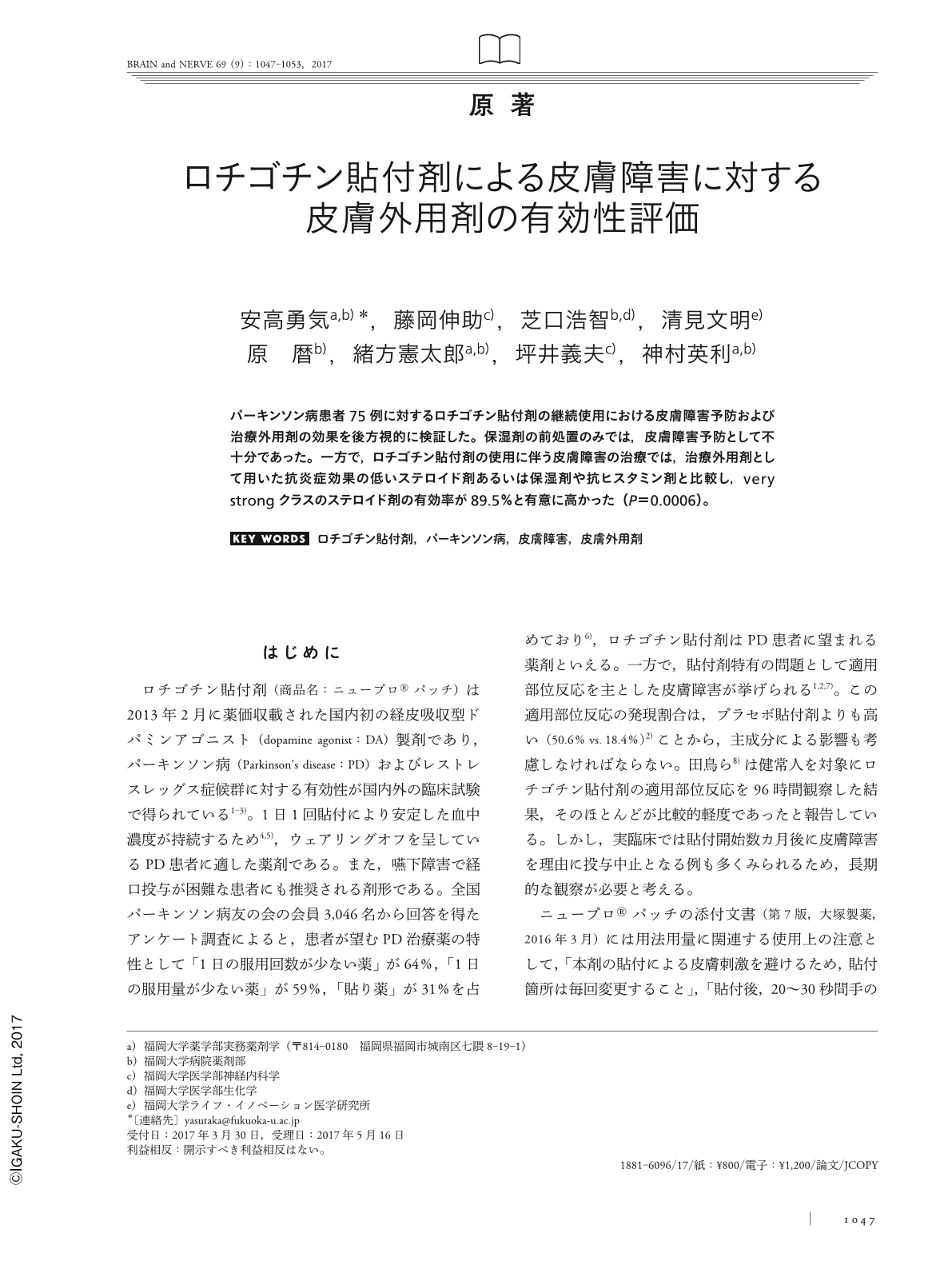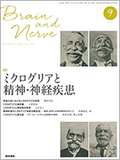Japanese
English
- 有料閲覧
- Abstract 文献概要
- 1ページ目 Look Inside
- 参考文献 Reference
パーキンソン病患者75例に対するロチゴチン貼付剤の継続使用における皮膚障害予防および治療外用剤の効果を後方視的に検証した。保湿剤の前処置のみでは,皮膚障害予防として不十分であった。一方で,ロチゴチン貼付剤の使用に伴う皮膚障害の治療では,治療外用剤として用いた抗炎症効果の低いステロイド剤あるいは保湿剤や抗ヒスタミン剤と比較し,very strongクラスのステロイド剤の有効率が89.5%と有意に高かった(P=0.0006)。
Abstract
Since the effect of a percutaneous absorption-type dopamine agonist (DA) preparation, rotigotine patch, stably persists by once-a-day application, this dosage form is appropriate for Parkinson's disease patients showing levodopa induced wearing off phenomenon. On the other hand, skin disorders, mainly application site reaction, are characteristic problems associated with use of the patch. In this study, to clarify the influence of a topical agent used to prevent or treat rotigotine patch-induced skin disorder on continuation of the patch application, patients who started rotigotine patch application at our hospital were retrospectively surveyed. The one-year continuation rate of rotigotine patch application was 37.3% (53 of 142 cases). It was insufficient to prevent skin disorders, only by the pre-treatment of a moisturizing agent alone. Regarding the effective rate of topical agents used to treat skin disorders, that of very strong-class steroids was 89.5%, being significantly higher than those of weak steroids, moisturizing agents, and antihistamines. It was suggested that for countermeasures against rotigotine patch-induced skin disorders, treatment with very strong-class steroids for external use early after development of skin disorders is more effective than preventive treatment with topical agents regardless of the type.
(Received March 30, 2017; Accepted May 16, 2017; Published September 1, 2017)

Copyright © 2017, Igaku-Shoin Ltd. All rights reserved.


